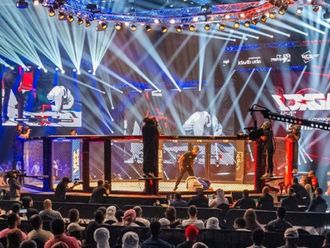Dubai: Former Argentina coach Edgardo Bauza flew to Dubai on Monday to sign a two-year contract to manage the UAE national team, according to reports in Buenos Aires.
The 59-year-old two-time Copa Libertadores winner, most known for tempting Lionel Messi out of international retirement, is expected to be formally announced by the UAE football Association (UAE FA) on Thursday.
If confirmed, he will replace Mahdi Ali, who quit the post following the Whites’ 2-0 2018 World Cup qualifying defeat away to Australia in March.
That loss left the UAE four points off a minimum required third place finish to reach Russia with three games remaining.
Bauza was sacked as coach of Argentina in April with the Albiceleste sitting fifth in their 2018 World Cup qualifying group in a cross-continental play-off place, one point off automatic qualification with four games to go.
Messi, 29, announced his retirement from international football following Argentina’s penalty shoot-out loss against Chile in the Copa America Centenario final last summer, but decided to return to the national team following discussions with Bauza.
The UAE had initially pursued another former Argentina coach Alejandro Sabella, Romanian current Al Ahli and former Saudi Arabia coach Cosmin Olaroiu, and Colombian former Honduras and Ecuador boss Reinaldo Rueda, before settling on Bauza, it is understood. Argentine former Al Wasl coach Gabriel Calderon, who used to manage Saudi Arabia, Oman and Bahrain, was also mulled over.
Bauza will be immediately tasked with winning the UAE’s remaining three World Cup qualifying games in the bleak hope that one of the sides above them — most likely Saudi Arabia, who have the hardest run-in — suffer a dramatic collapse.
The UAE’s next World Cup qualifier is away to Thailand on June 13 followed by a pivotal test at home to Saudi Arabia on August 31, and Iraq away on September 5.
Bauza does have some experience in the region having managed Saudi Arabia’s Al Nassr briefly in 2009, but he is also known for leading Ecuador’s Quito and Argentina’s San Lorenzo to respective Copa Libertadores titles in 2008 and 2014.












